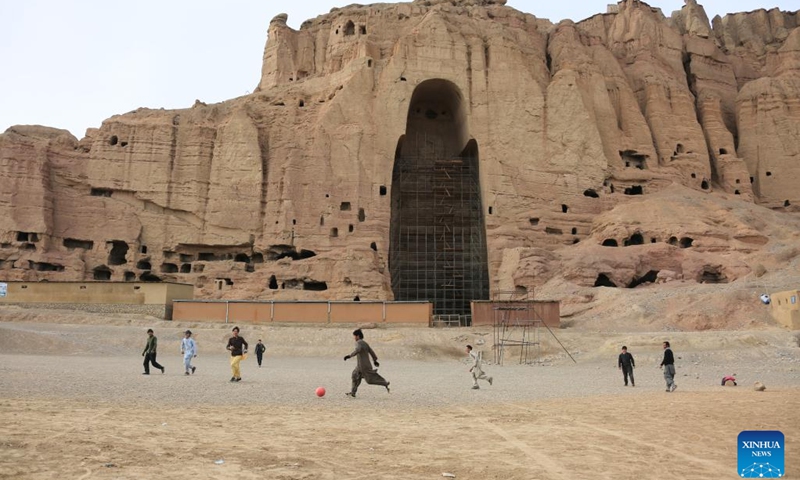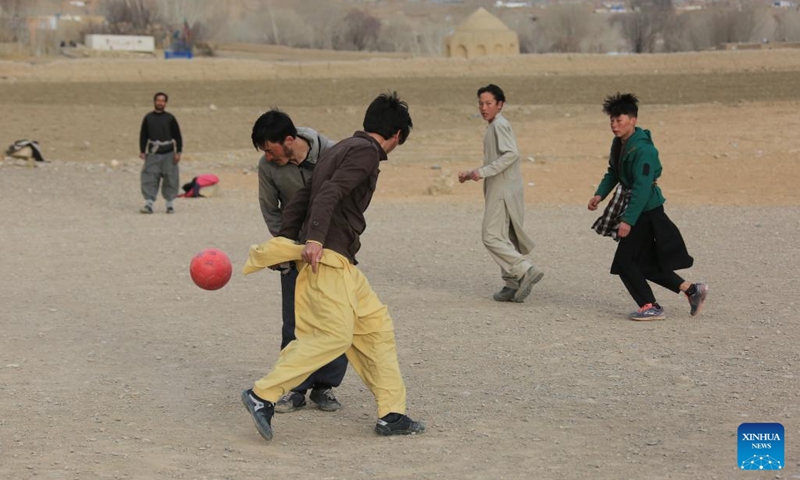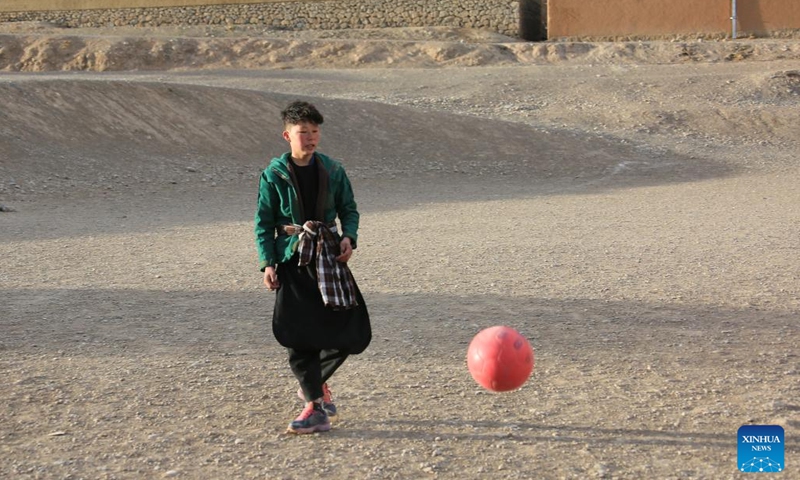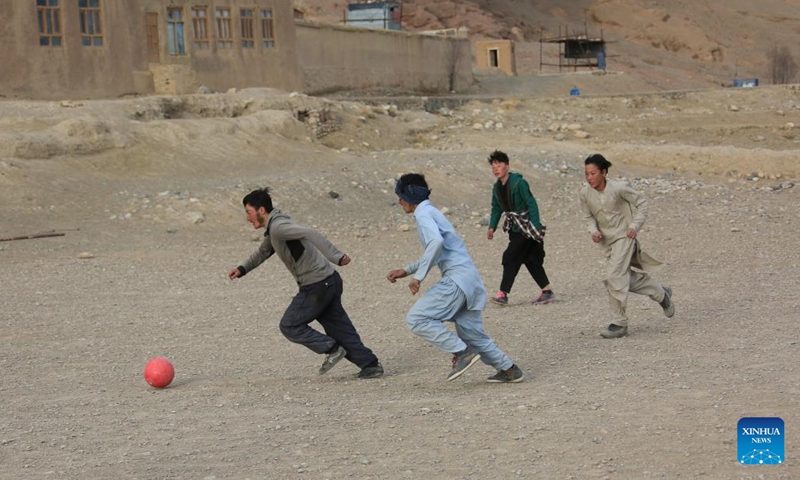
Young people play football in front of the Buddha site in Bamyan province, Afghanistan, Feb. 7, 2023. Millions of kids around the world dream of becoming football legend Lionel Messi, but Afghan boy Amir Husain is not one of them. He has never even seen a live game of the Argentinian national football team.(Photo: Xinhua)

Young people play football in front of the Buddha site in Bamyan province, Afghanistan, Feb. 7, 2023. Millions of kids around the world dream of becoming football legend Lionel Messi, but Afghan boy Amir Husain is not one of them. He has never even seen a live game of the Argentinian national football team.(Photo: Xinhua)

An Afghan boy plays football in front of the Buddha site in Bamyan province, Afghanistan, Feb. 7, 2023. Millions of kids around the world dream of becoming football legend Lionel Messi, but Afghan boy Amir Husain is not one of them. He has never even seen a live game of the Argentinian national football team.(Photo: Xinhua)

Young people play football in front of the Buddha site in Bamyan province, Afghanistan, Feb. 7, 2023. Millions of kids around the world dream of becoming football legend Lionel Messi, but Afghan boy Amir Husain is not one of them. He has never even seen a live game of the Argentinian national football team.(Photo: Xinhua)
Millions of kids around the world dream of becoming football legend Lionel Messi, but Afghan boy Amir Husain is not one of them. He has never even seen a live game of the Argentinian national football team.
Hussain, 14, lives in central Afghanistan's Bamyan Valley where the famous Buddhas of Bamyan stand. Although the old-fashioned TVs, which have been used for several years there, can receive sports channels, few children in the village have the chance to stay up all night watching a football match.
Despite the setback, Hussain's determination remained unshakable. At a small flat ground near his home, he gathered farm tools as corner posts and made use of bricks for goalposts and invited some of his friends to play with him.
"Every day after having lunch, I come here and play football from 2 to 4 p.m. (local time)," Hussain said while lamenting that poverty as an obstacle is going to devour his future dreams.
Aid agencies predict that a record 28.3 million people, around two-thirds of the country's population, will need humanitarian assistance in 2023, with 6 million of those already perilously close to famine.
"I am from a poor family that can't keep warm by ourselves in the cold winter and I also have to scavenge in garbage bins to find something usable," said Hussain.
Like Hussain, 14-year-old Tazahir plays football nearly every day in front of the famous Buddha site and dreams of playing in national and international football matches to win honors for his war-torn country.
Following the 9/11 attacks on New York and Washington D.C., the United States accused Afghanistan of harboring Osama Bin Laden, the leader of al-Qaida, and invaded the country in October 2001.
During the 20 years of conflict in Afghanistan, more than 30,000 civilians lost their lives, and some 11 million people were made refugees.
Although the triple whammy of war, regime change, and poverty has dimmed Tazahir's dream of playing football since he has to work on the street to support his family, he has not given up yet.
"Playing football is not only good for health and building a healthy society, but can also show the importance of teamwork," Tazahir said.
Inspecting the football match between two teams of local kids in front of the Buddha site, Ahmad Behzad, provincial directorate of Physical Education and Sport in Bamyan also believes that the spirit of sports including teamwork, cooperation and unity is of great importance in Afghanistan.
"Playing sports can create more intimacy among people, eliminate discrimination in society and bring more unity," Behzad told Xinhua.
"Our country suffered a lot from poverty and conflicts, therefore, intimacy and cooperation is particularly important to us," Behzad added.
